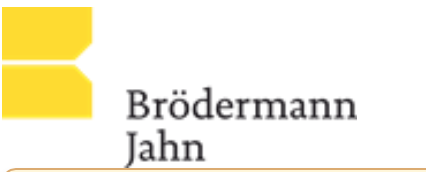
Dear befriended colleagues in China,
Today (Friday 27 March 2020), the second chamber (“Bundesrat”) will consent to a law which the German Parliament has passed earlier this week on Wednesday; i.e. an „Act to Attenuate the Consequences of the COVID-19 Pandemic in Civil, Insolvency and Criminal Procedure Law” (“COVID-19 Pandemic Attenuation Law”). I was personally involved last Monday in some of the drafting aspects on behalf of the German Bar. The law will come into force with retroactive effect as of 1 March 2020.
The law contains a bundle of modalities whereby it focuses on how to generate cash for consumers and small companies with less than ten employees.
What does this law mean for DOING BUSINESS IN GERMANY?
By way of background your client or its Human Resource Department (if it has an affiliate in Germany) may wish to know about the bundle of instruments available for any employees in need, in their capacity as consumers. They may wish to know that consumers may presently refuse payment on long term consumer contracts such as contracts on living space, electricity, gas, telecommunication, and sometimes water.
The more important impact for DOING BUSINESS IN GERMANY, however, lies in the rights which the statute - technically set out in a new article 240 of the Introductory Law to the German Civil Code – grants to anybody in Germany, including all German business partners of your clients. This includes suppliers and customers.
If your client has an affiliate in Germany, it can also rely on these rights; but this will relate only to a minority of your clients. For this reason, the analysis hereinafter focusses on the perspective of a foreign client doing business with German companies.
1. Pursuant to the new art. 240 § 2 of the Introductory Law to the German Civil Code, any business partner might generate cash by withholding rental payments for rented spaceuntil 30 June 2020 if it can argue in a plausible way an existing relationship between the COVID-19 pandemic and its economic difficulties of payment. In such circumstances, its landlord cannot use the argument of non-payment as a reason to terminate the rental agreement. The business partner then has until 30 June 2022 to pay back, belatedly, the rent due between April and June 2020.
However, the statute excludes only the landlord’s right to terminate the rental agreement. This means logically that it may claim for interests at the applicable statutory rate.
2. Art. 1 of the above mentioned COVID-19 Pandemic Attenuation Law has created a new statute, i.e. the “Act for a Temporary Suspension of the Duty to File for Insolvency and To Limit the Liability of Management in Case of an Insolvency Situation Caused by the COVID-19 Pandemic” (COVID-19 Pandemic Insolvency Suspension Act).
Business partners may be in need to rely on this tool. This includes small local suppliers and larger business partners with a limited cash cushion, including e.g. first tier OEMs in situations in which your client is working as a second-tier supplier.
When doing business with such companies, the new act invites to be cautious:
a) Watch out for the following risk: Pursuant to art. 1 § 1 of the COVID-19 Pandemic Insolvency Suspension Act, the obligation to file for insolvency is suspended until 30 September 2020. Thus, if the financial situation would require to file for insolvency, the normal time limits to file for insolvency would start to run on 1 October 2020 so that the insolvency needs to be filed latest on 21 October 2020 in usual circumstances. The act creates a risk of a series of insolvencies throughout Germany in the second half of October/early November.
b) It is against this context to remember, as noted above at 1., that the obligation to pay rent for April through June remains in existence even if the business partner does not pay its rent.
c) Positive: Under German insolvency law, a trustee for insolvency can usually challenge the payments made three months preceding an insolvency proceeding and claim back such payments. The new German COVID-19 Pandemic Insolvency Suspension Act eliminates this risk. If and to the extent your client will receive payments for deliveries of goods or services until 30 September 2020 in the ordinary course of business as contractually agreed, § 2 subpara. 1 no. 1 of the COVID-19 Pandemic Insolvency Suspension Act eliminates the risk that a trustee in insolvency later challenges such payments. The provision explicitly states that such payments are considered as being made in the course of ordinary business and with the prudence of an ordinary careful business manager, in particular if such payments keep up the ordinary business.
d) According to the same § 2 (at subpara 1 no. 3 and 4) of the COVID-19 Pandemic Insolvency Suspension Act, the trustee for insolvency may also not attack later any credit decision or action to receive security in line with existing contractual agreements (or at the occasion of concluding new contracts) from that business partner during the time until 30 September 2020.
You might find this helpful. We remain open to answer any more detailed questions.
With best regards
Eckart
Prof. Dr. Eckart Brödermann
(University of Hamburg),
LL.M. (Harvard), Maître en droit (Paris V), FCIArb. (London)
Certified Specialist in International Business Law (Germany)
Rechtsanwalt (Germany), Attorney-at-law (New York)








 11011502003002
11011502003002